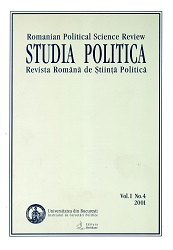Legitimated Inequality. Constitutional Implications of the United States Pregnancy Discrimination Act of 1978
Legitimated Inequality. Constitutional Implications of the United States Pregnancy Discrimination Act of 1978
Author(s): Michelle D. DeardorffSubject(s): Politics / Political Sciences, History, Social Sciences, Gender Studies, Law, Constitution, Jurisprudence, Human Rights and Humanitarian Law, Sociology, Gender history, Ethnic Minorities Studies
Published by: Editura Universităţii din Bucureşti
Keywords: Inequality; Discrimination Act of 1978; democracy; women;
Summary/Abstract: In a constitutional democracy like the United States, law provides the context and structure for the larger political world. It can act as a force to cement the control and authority of the majority (either in a just or an unjust manner), it can empower political minorities in challenges against majority control and most frequently, it can provide opportunities and tools for both majorities and minorities to politically participate. The law, and its alteration, allow those who challenge the dominate social structure the ability to use the very legitimizing agent of the majority (the Constitution, statutory laws, and public codes) to force the majority to change according to their own rules. This is true not only in changing statutory laws and regulations, but also in the transformation of jurisprudential reasoning.
Journal: Studia Politica. Romanian Political Science Review
- Issue Year: 1/2001
- Issue No: 4
- Page Range: 1103-1130
- Page Count: 28
- Language: English

